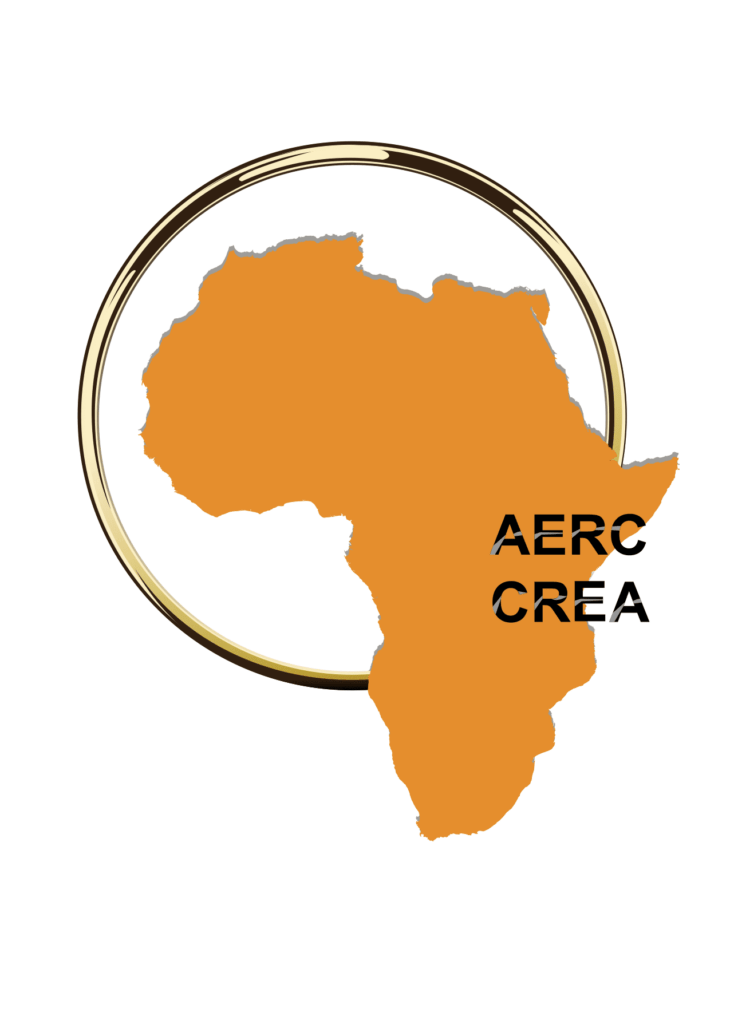On “Business Environment, Competitiveness And Economic Growth In Africa”
Economists, Researchers and Policymakers Examine the Changing Context for African Business Competitiveness and Market Development for Conducive Growth Outcomes
22 June 2020, The African Economic Research Consortium (AERC) will host its 52nd Plenary Session on “Business Environment, Competitiveness and Economic Growth in Africa” on the 29th of June 2020. The sessions will be held virtually where researchers, academics, policy-makers, non-state actors and economists will discuss the link between business environment, competitiveness and economic growth in African economies. The official opening and keynote will by Hon. Betty C. Maina, Cabinet Secretary, Ministry of Industrialization, Trade and Enterprise Development, Kenya.
The plenary will seek to unpack why Africa continues to be less competitive despite progress in the areas of doing business, investment climate and infrastructure. The focus is on how mis-alignments in economic policy management create distortions that impede the performance of firms, thereby reducing the growth of decent jobs.
“Competitive economies are most likely able to provide an environment conducive to business, market development, policy clarity, strong institutions that define the rules/incentives mechanism and effective coordination; and hence will grow more sustainably and inclusively. This means that there is a likelihood that everyone in that particular society, market segment or physical location will benefit from the fruits of economic growth,” said Professor Njuguna Ndung’u, AERC’s Executive Director.
A range of diverse papers, looking at different aspects, will be presented. Dr Shantayanan Devarajan, Georgetown of University, will start off the proceedings with a look at African Competitiveness: What do Natural Resources have to do with it? Next will be The Changing Context for African Competitiveness: What will happen to Manufacturing? by Prof. Ernest Aryeetey, Secretary General of the African Research Universities Alliance (ARUA) and former Vice-Chancellor of the University of Ghana. The third presentation, by Prof. Pramila Krishan – University of Oxford, will be on Exchange Rate Regimes and Firm Competitiveness and the last paper on Employment Transformation in sub-Saharan Africa – What does Competitiveness have to do with it? will be presented by Prof. Louise Fox, former Chief Economist, USAID.
AERC will, in addition, host a Special Session on “African Economies Amid COVID-19: Impacts and the Road Ahead” on the 30th of June to reflect on pertinent issues and identify policy and administrative responses by drawing lessons from global experiences. Faced with a novel and fast-moving pandemic, and with limited avenues to slow the spread of infections and so far no comprehensively and sustainable medical treatment options for those infected to combat it, most countries have resorted to administrative measures such as lockdowns: mandatory restrictions on economic and other activity meant to minimize social interactions to slow the spread of the COVID-19 virus. This session will shed light on the appropriate course of actions that African governments can pursue to manage the pandemic, while putting in place recovery strategies parallel to managing the pandemic. The session will also provide new emerging evidence on the impact of the COVID-19 pandemic on Africa for a range of diverse policy makers.
Prof. Erik Thorbecke, Cornell University, USA, will chair the session and Prof. Njuguna Ndung’u, Executive Director, AERC, will set the stage. Mr. Abebe Selassie, Director of Africa Region, IMF, will deliver the Keynote Address. Other presenters include: Prof. Benno Ndulu Pathways for Prosperity Commission on Technology and Inclusive Development and former Bank of Tanzania Governor, Stephen N. Karingi, Director – United Nations Economic Commission for Africa (UNECA); and Hanan Morsy, Director – African Development Bank (AfDB), who will speak on Macroeconomic Consequences.
This will be followed by general discussions and contributions on: Impact on Poverty and Inequality, chaired by Prof. Finn Tarp –Copenhagen University, Denmark. Panelists include :Prof. David Sahn – Cornell University; Nicole Ntungire -IGC, Uganda; Ahmadou Aly Mbaye -University Cheikh Anta Diop (UCAD), Senegal; Alemayehu Seyoum Taffesse – International Food Policy Research Institute (IFPRI);Rose Ngugi -Kenya Institute for Public Policy Research & Analysis (KIPPRA); Matthieu Teachout – Research Director, IGC;Abdoulaye Seck – Cheikh Anta Diop (UCAD), Senegal andHarun Issahaku – Ghana University of Development Studies.
About African Economic Research Consortium (AERC)
Established in 1988, African Economic Research Consortium is a premier capacity building institution in the advancement of research and training to inform economic policies in sub-Saharan Africa. AERC’s mission rests on two premises: first, that development is more likely to occur where there is sustained sound management of the economy; second, that such management is more likely to happen where there is an active, well-informed cohort of locally based professional economists to conduct policy-relevant research. AERC builds that cohort through a programme that has three primary components: research, training, and policy outreach. The organization integrates high quality economic policy research, postgraduate training, and policy outreach within a vast network of researchers, universities, and policy makers across Africa and beyond. Learn more at www.aercafrica.org and follow us on Twitter @aercafrica.

